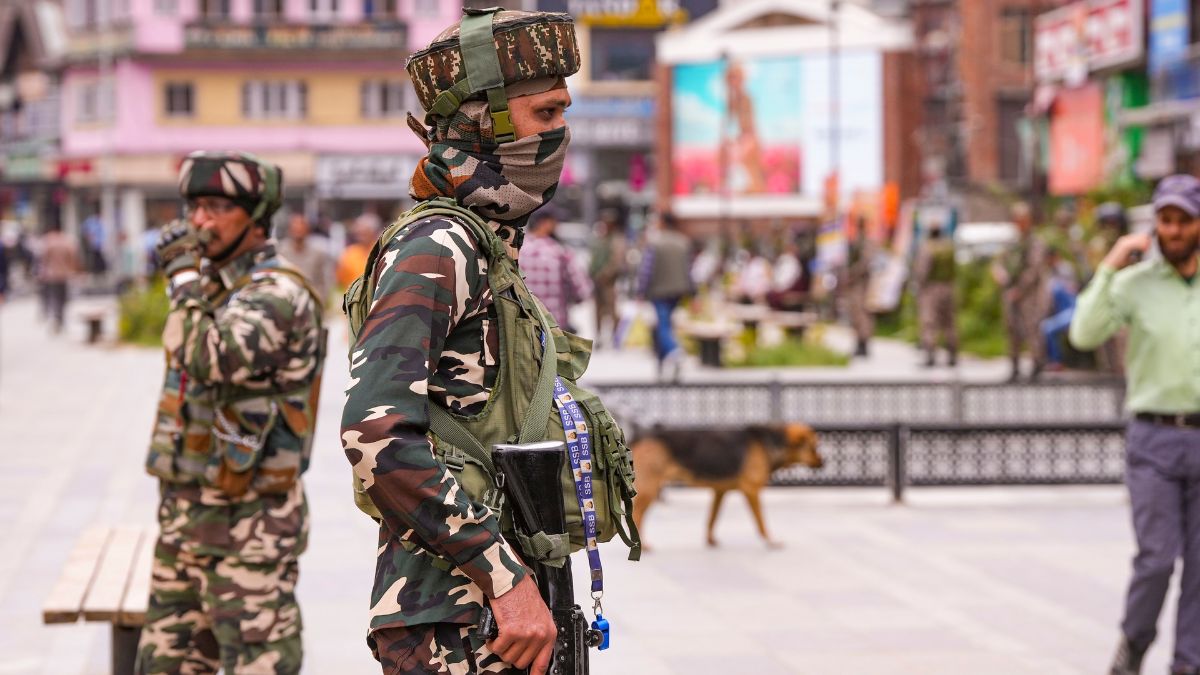OPINION | Pahalgam carnage demands a sharper legal response to enemy agents within the nation

Are the current provisions of the law agile, nimble-footed and comprehensive enough to address the ‘prevention’—as well as the ‘detection’—of an attack of the magnitude of the April 22 carnage in Pahalgam? This question assumes significance in the context of a widely shared belief that the foreign terrorists simply couldn’t have done this on their own.
Simply put, there are insiders, our own citizens, who have acted as agents of the enemy. No doubt that they are a handful. That they are few and far between is evidenced by the spontaneous outrage against this bloodbath, something unimaginable five years before, witnessed on the streets of Kashmir in very remote villages and towns such as those in Kokernag and Sopore. This however, does not make the enemy agents any less lethal.
To return to the question: how helpful and adequate are the current legal provisions to effectively deal with this handful of extremely dangerous agents of the enemy? Security forces, police officers and prosecutors have variously expressed concern and frustration that somehow, these enemy agents—who everyone knows are at large, and are as much responsible as the attackers who pull the triggers—have not been brought to justice. The dismal rate of their detection, prosecution and conviction gives credence to this anxiety.
ALSO READ | Pahalgam terror attack: 10 lakh bookings cancelled, J&K tourism loses over Rs 1,000 crore in 2 weeks
The terror ecosystem, as has been seen, has often come to the rescue of these enemy agents by cleverly asserting that ‘persons who have variously aided and assisted the foreign terrorists did it under gunpoint’. It is for the investigation to segregate those who aided under compulsion and those who did it willingly.
The law should deter above ground elements camouflaged as practitioners of politics, media, law, HR activists and academics to extend blanket amnesty to all who aided the foreign terrorists.
Extraordinary circumstances warrant extraordinary responses, including legal. The current national security challenge J&K faces is no less than a war. The situation undoubtedly merits the invocation of the jurisprudential canon of ‘reverse onus of proof’. The enemy agents (terrorists without guns) shall have to prove their innocence (and not their guilt to the prosecution) when law enforcement and security forces find out that they have provided shelter, food, SIM cards, communication devices, transport, navigation assistance, identification of targets for terrorists, assistance in planning and execution of terrorist attacks, as also escapes from anti-terrorist operations, medical aid etc.
ALSO READ | Pahalgam terror attack: Pak Army's unprovoked firing continues, targets Indian posts in 5 sectors along LoC
The concept of ‘reverse onus of proof’ is not new to Indian jurisprudence. Section 24 of the Prevention of Money Laundering Act (PMLA) 2002 provides that the law shall presume that the proceeds of the crime are involved in money laundering, unless the accused proves otherwise.
Likewise, section 54 of the Narcotic Drugs and Psychotropic Substances (NDPS) Act 1985 lays down that the recovery of contraband from a person shall be evidence of guilt, and it is for the accused to satisfactorily prove that the possession is not attributable to him.
Very pertinently, section 3 of the Enemy Agents Ordinance 2005—actually a legacy law enacted to respond to the extraordinary situation of ‘outside raiders’ running amok in J&K during Indo-Pak wars—emphatically goes a step further and states that any person shall be guilty of the offence of being an enemy agent if he wilfully omits to report to the nearest magistrate or police officer of certain activities of the outside raiders (foreign terrorists in the current context), the penalty for which ranges from death to rigorous imprisonment (from up to 10 years to life).
ALSO READ | NIA DG visits Pahalgam as hunt for terrorists intensifies in J&K
UAPA, the primary legal bulwark against terrorist and separatism, also provides for statutory reverse onus of proof. However, it is very limited in its scope.
Section 43E(a) states that a person from whose possession arms, ammunitions and explosives are recovered and used in the commission of a terrorist offence, would be presumed guilty. The crux of the problem is: it excludes a wide range of aiding, assisting and facilitating activities by OGWs usually seen in J&K.
The need of the hour, therefore, is to amend the law suitably to incorporate the legal liability of compulsory reporting of terrorist activities, including help extended under compulsion, as enshrined in Section 3 of the Enemy Agents Ordinance 2005, and simultaneously increase the scope of Section 43E of the UAPA to include the entire range of activities of an OGW, typically seen in Jammu and Kashmir.
The trial and appellate courts shall have to chip in by laying down practical legal tests to distinguish facilitation extended under duress, from those done deliberately. For instance, non-reporting after the terrorists have left the house or let-off the person, must be construed as aiding with mala fide mens rea. However, extreme caution may have to be exercised, lest the tests devised by the courts of law defeat the legislative intent of the proposed amendment. Alternatively, the parliament or competent assemblies can expressly legislate these tests into the statute itself.
Vasudev Swain is an advocate practicing at the Supreme Court of India.
Opinions expressed in this article are those of the author and do not purport to reflect the opinions or views of THE WEEK.
India